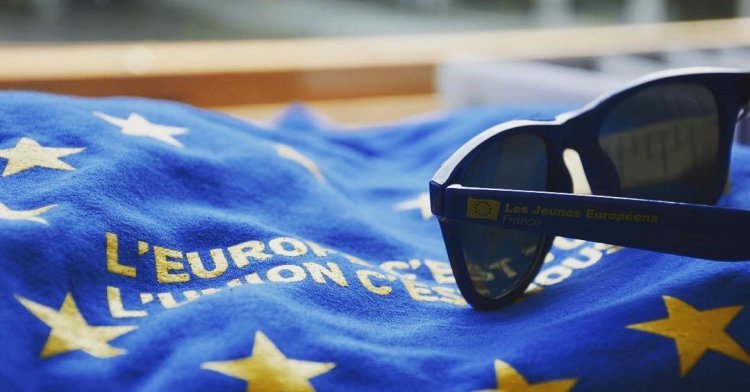“From now on, Kosovo changed its political position; we are henceforth an independent, free and sovereign state”, declared the president of the Parliament Jakup Krasniqi. This independence, which will be under international supervision, should be recognised quickly by the United States and several large member states of the European Union, but it was rejected in advance by Russia and Serbia.
The independence of Kosovo will be done under international supervision. In spite of these divisions, the European Union decided, without the endorsement of the UN, to deploy a mission of some 2.000 police officers and lawyers “to accompany” the beginnings of Kosovo’s independence.
The opposition of Serbia and the Serb minority living in this province accredit the assumption of a possible secession of the Northern part of Kosovo, where 40.000 out of the 120.000 Serbs present in the province live, with the formation of their own “Kosovo Parliament”.
A paradoxical European diplomacy
The European Union (EU) presents itself in the Balkans in a dispersed order once again. With the difference to the collapse of Yugoslavia in the early 1990s, it will not tear. It is decided to save appearances. Even if some among the twenty-seven EU members do not recognise the new state, none was opposed to the mission in Kosovo. The EU thus comes to make an international interference but tries to keep it at a minimum.
In fact, we are left with the impression that Europe is in a contradiction: whereas it was created to exceed nationalisms, in this instance, some will be able to think that nationalism is precisely rewarded. It is besides the fear of the states which have strong autonomous minorities on their territory. Only think of the Spanish Basque country, but also of the northern part of Cyprus.
We can ask the following question on the matter: what if it were a state inside the EU which demanded its independence? What would occur if Scotland obtained its independence of the United Kingdom for example:
– Would there be a new state within the European Union?
– Is it necessary to support this independence against one of the Member States of the EU?
– Is it necessary to renegotiate all the treaties and the assistances of the EU with this “state”?
– What would happen if only a part of the current Member States would recognise it?
– And so forth…
The EU: a way out for Kosovo and Serbia?
The Community path would be a solution for the problem between Serbia and Kosovo. All the elements which made the success of Europe are there: together these two states would be stronger, the economic links would allow a better development of the infrastructures, and it would enable the overcoming of nationalism on both sides to allow the peaceful coexistence between the communities.
After that of Slovenia, the accession of Croatia is on the right track. That of Serbia seems also obvious, in spite of its incomprehension of EU support for the independence of Kosovo. Moreover, the Serb gave their vote of confidence to a candidate more pro-European than pure nationalism juice which was proposed to them at the time of the last presidential election.
If the political separation of these people could seem inescapable since the war started in 1999, this one is done in pain and with important sources of conflicts. However, these two countries need to be stabilised to allow the installation of infrastructures and an economy, which will put an end to uncertainty related to several periods of war for twenty years.
However, adhesion to the EU can correspond to that. Moreover, the installation of borders with a free-circulation of people between these two countries would remove part of the sources of conflicts that still exist.
Unfortunately, we are still far from their EU entry. We must be satisfied to see the confirmation of the interest for the European project.
Lacking a European public space
The independence of Kosovo raises also another question: was this question explained and discussed in the European public space? No.
Once again, we have a Europe that manages such an event through its diplomatic services, far from the media and the citizens. We can only regret this irrefutable fact. We would not have a different solution inevitably, but the EU could convey its opinion without this one seemingly being an opinion equal to that of the Spanish, the French or the English… One sees it in the Kosovar demonstrations: the flags waved and considered as being friendly flags are those of the United States as much as that of the European Union… of the United Kingdom and France.
Why didn’t we have reports before hands? Once again, we have the impression that the EU took a decision without the citizens and which it advances without being sure of itself, so the brittleness of the joint position is obvious.
We have the following responsibility:
– the decision makers must state their choice clearly and discuss it in a more transparent way.
– the media must make it possible for the citizens to be informed about the stakes of the European questions and to give the political personnel a space where to express itself.
– the citizens must mobilize themselves in trans-European manner and request accountability from their European and national representatives.
What does the proclaimed independence of Kosovo reveal? That it is urgent for Europe to express itself in a more solid way on the international scene or live with the risk others will decide for it.
Russia and the United States are speaking for the Serbs and the Kosovars respectively. The European Union shows rather a weakness in this respect, whereas it appears attracting thanks to the advantages of the Community construction.



Follow the comments: |
|
